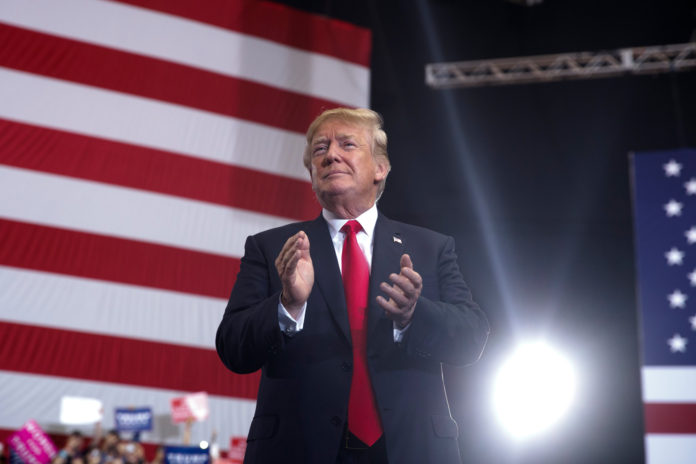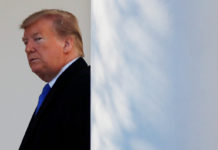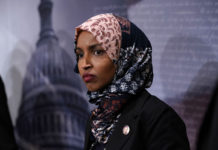
WASHINGTON — President Trump, ramping up his assertions of extraordinary powers, declared in a tweet on Monday that he had “the absolute right” to pardon himself for any crime.
While no president has ever purported to pardon himself, and it is not clear whether Mr. Trump could legitimately take such a step, the president’s claim was the latest in an aggressive series of moves to assert his control over federal law enforcement.
Last month, Mr. Trump crossed a traditional line by ordering an investigation into the Russia investigators. And late last year he boasted he has “an absolute right to do what I want to with the Justice Department.”
The president has had help in shaping his expansive view of his authority: For at least a year, his lawyers in the investigation into whether he tried to obstruct the Russia inquiry have been advising the president that he wields sweeping constitutional powers to impede investigations no matter his motive — and despite obstruction-of-justice laws that everyone else must obey.
He has unfettered authority to fire the F.B.I. director, which he did last year; to order a federal investigation opened or closed; and to pardon anyone, including felons or criminal suspects, his longtime personal lawyer Marc E. Kasowitz said in a confidential memo last June. “The president cannot obstruct himself or subordinates acting on his behalf by simply exercising these inherent constitutional powers,” he wrote.
Many legal scholars have derided such claims as going too far, although no Supreme Court precedents offer definitive guideposts about whether Congress can make it illegal for a president to use his powers to supervise the Justice Department in a corrupt way.
“We overthrew control by a monarchy, and the Constitution signals in multiple places that the president is subject to law,” said Peter Shane, an Ohio State University law professor and co-author of a separation-of-powers casebook.
Mr. Kasowitz made his case in a letter to the special counsel, Robert S. Mueller III, and it was endorsed by two of the president’s other personal lawyers, John M. Dowd and Jay A. Sekulow, who incorporated his arguments in their own letter to Mr. Mueller in January. Both letters, published over the weekend by The New York Times, offered an array of factual and legal arguments for why Mr. Trump has not violated obstruction laws and need not answer questions from Mr. Mueller.
But their striking constitutional claim that obstruction statutes cannot bind Mr. Trump stood apart from the rest of their case.
The idea that presidents, by virtue of their unique constitutional powers, are above ordinary law has surfaced from the White House before. Defenders of the Reagan administration made the claim during the Iran-contra affair, and lawyers in the George W. Bush administration wrote memos blessing torture and warrantless wiretapping programs. As Richard M. Nixon claimed after the Watergate scandal: “When the president does it, that means that it is not illegal.”
But the Trump team’s claim that obstruction-of-justice statutes do not apply to the president carries new twists.
For one thing, such disputes have tended to arise in the context of a president, in his role as commander in chief, pushing legal limits to defend the country from foreign threats. Even the Nixon administration rationalized surveillance of domestic…










